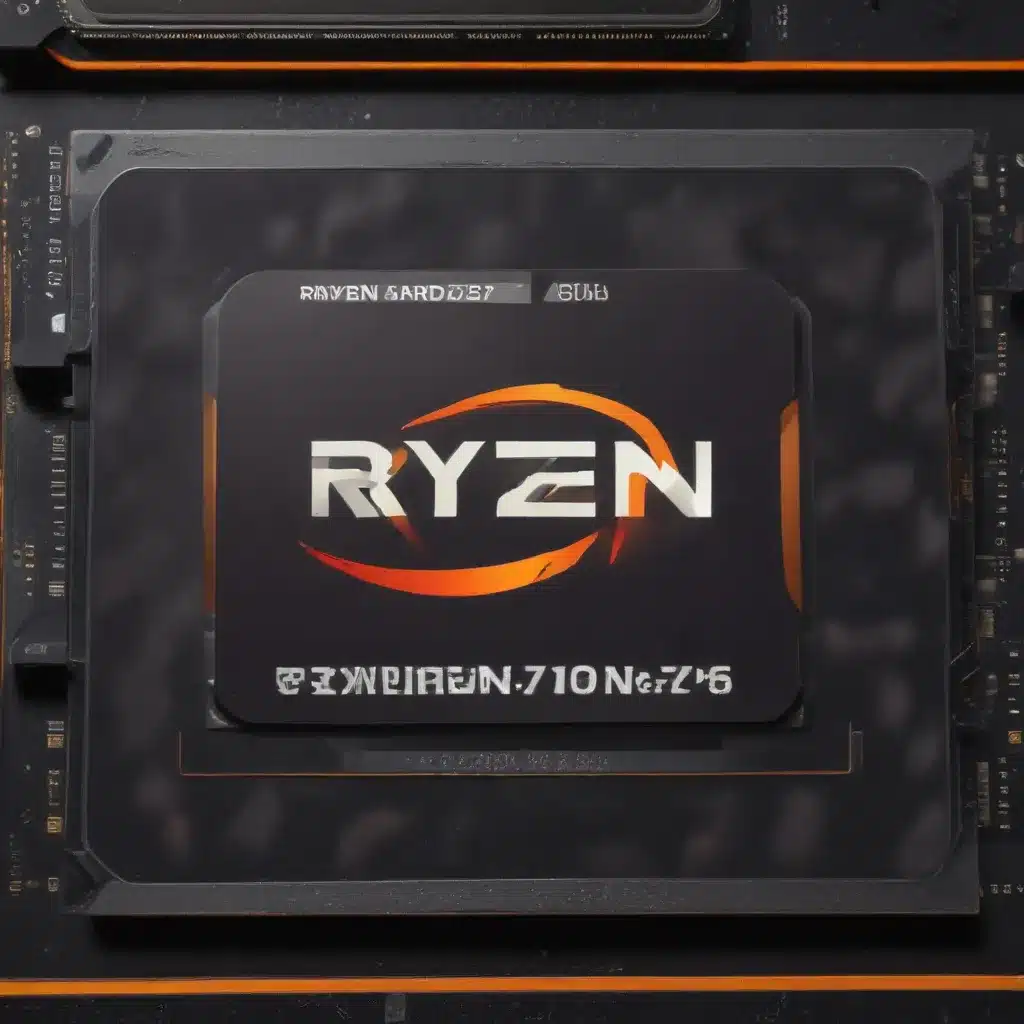
The Arrival of AMD’s 3D V-Cache CPUs
The world of PC gaming has seen a remarkable evolution in recent years, with advancements in both hardware and software driving ever-increasing performance and immersive experiences. At the forefront of this revolution are AMD’s Ryzen processors, which have consistently delivered impressive gains in both single-threaded and multi-threaded workloads.
The latest chapter in this saga is the introduction of AMD’s 3D V-Cache technology, which has the potential to revolutionize the gaming landscape once again. The Ryzen 7 5800X3D, released in 2022, was the first CPU to feature this innovative cache architecture, and it quickly established itself as a formidable contender in the high-end gaming market. Now, the much-anticipated Ryzen 7 7800X3D is poised to take the stage, promising even greater performance improvements.
In this comprehensive article, we’ll dive deep into the world of 3D V-Cache and explore the key differences between the Ryzen 7 5800X3D and the Ryzen 7 7800X3D, with a particular focus on their impact on 1080p gaming performance. Whether you’re building a new gaming rig or looking to upgrade your existing setup, this guide will arm you with the knowledge you need to make an informed decision.
Unveiling the Power of 3D V-Cache
The core of AMD’s 3D V-Cache technology lies in its ability to dramatically increase the amount of L3 cache available to the processor. Traditionally, CPUs have relied on a two-dimensional cache layout, where the cache is spread across the chip’s surface. 3D V-Cache, on the other hand, stacks an additional layer of cache directly on top of the existing CPU die, effectively tripling the L3 cache capacity.
This innovative approach has a profound impact on gaming performance, as the increased cache size helps to reduce the time it takes for the CPU to fetch data from memory. In CPU-bound scenarios, where the processor is the bottleneck, this can translate into significant performance gains, particularly in 1080p gaming where the workload is heavily skewed towards the CPU.
Ryzen 7 5800X3D: The Gaming Champion
The Ryzen 7 5800X3D was the first CPU to feature AMD’s 3D V-Cache technology, and it quickly established itself as a gaming powerhouse. Compared to the standard Ryzen 7 5800X, the 5800X3D boasts a staggering 64MB of L3 cache, a substantial increase over the 5800X’s 32MB.
In gaming benchmarks, the 5800X3D has consistently demonstrated its prowess, often outperforming even Intel’s flagship 12th-generation Core i9-12900K in 1080p gaming scenarios. The increased cache size allows the processor to keep more game assets and data readily available, reducing the need to fetch information from system memory, which can be a bottleneck in CPU-bound situations.
One particularly notable example is the game Planetside 2, which is known to be highly cache-dependent. In this game, the 5800X3D has demonstrated remarkable performance, with significantly improved 0.1% and 1% lows compared to other Ryzen processors, resulting in a smoother and more consistent gaming experience.
Ryzen 7 7800X3D: The Next-Generation Contender
The Ryzen 7 7800X3D, AMD’s latest 3D V-Cache-equipped CPU, is set to build upon the success of its predecessor. Boasting the same 64MB of L3 cache as the 5800X3D, the 7800X3D is expected to further refine and enhance the gaming experience.
One of the key differences between the two CPUs is the underlying architecture. The 7800X3D is based on AMD’s Zen 4 design, which introduces several improvements over the Zen 3 architecture used in the 5800X3D. These enhancements include higher clock speeds, more efficient power delivery, and improved branch prediction, all of which can contribute to enhanced gaming performance.
Early benchmarks and rumors suggest that the 7800X3D could potentially outperform the 5800X3D in certain gaming scenarios, particularly at 1080p resolution. The combination of the increased cache size and the Zen 4 improvements may give the 7800X3D a slight edge in maximizing frame rates and minimizing latency-sensitive issues like microstutter.
Choosing the Right CPU for 1080p Gaming
When it comes to 1080p gaming, both the Ryzen 7 5800X3D and the Ryzen 7 7800X3D are formidable options. However, the choice between the two will ultimately depend on your specific needs and budget.
If you’re building a new system and have the budget to accommodate the latest hardware, the Ryzen 7 7800X3D may be the better choice. Its Zen 4 architecture and potential performance advantages could provide a more future-proof solution, especially as games continue to evolve and become more demanding.
On the other hand, if you already have an AM4 motherboard and are looking to upgrade your CPU, the Ryzen 7 5800X3D remains an excellent option. Its proven performance in 1080p gaming, combined with its relatively lower cost compared to the 7800X3D, can make it a more attractive choice for those on a tighter budget or with an existing AM4 platform.
Regardless of which CPU you choose, it’s important to pair it with a high-end graphics card, such as an NVIDIA RTX 4070 Ti, to truly unlock the full potential of these powerful 3D V-Cache processors in 1080p gaming. By striking the right balance between CPU and GPU, you can ensure an exceptional and immersive gaming experience.
Conclusion: A New Era of 1080p Gaming Performance
The arrival of AMD’s 3D V-Cache technology has ushered in a new era of gaming performance, and the battle between the Ryzen 7 5800X3D and the Ryzen 7 7800X3D is a testament to this. Whether you opt for the proven prowess of the 5800X3D or the anticipated advancements of the 7800X3D, you can be confident that either processor will deliver a remarkable 1080p gaming experience.
As you weigh your options, consider your specific needs, budget, and the longevity of your system. Whichever path you choose, one thing is certain: the future of 1080p gaming has never been brighter, and AMD’s 3D V-Cache CPUs are leading the charge.
To stay up-to-date with the latest advancements in PC hardware and gaming technology, be sure to visit https://itfix.org.uk/ for more informative articles and expert insights.












